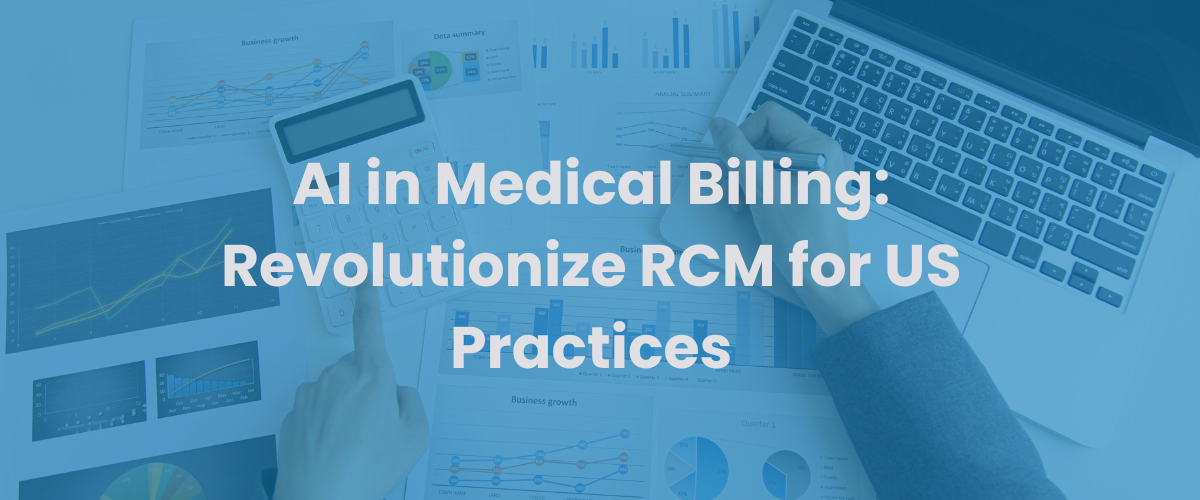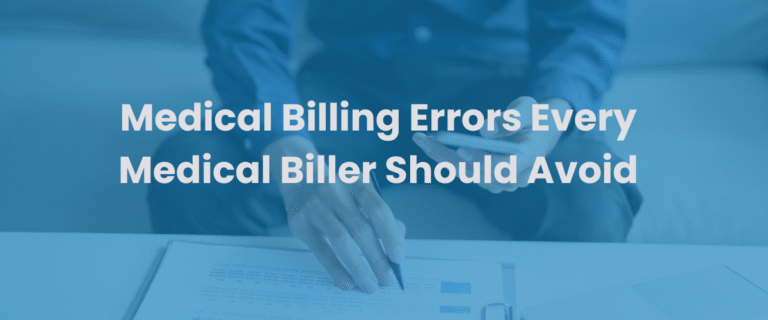The US healthcare landscape is undergoing a dramatic transformation, driven by the integration of artificial intelligence (AI) into medical billing and revenue cycle management (RCM). As practices across the country grapple with rising administrative costs, complex regulations, and increasing claim denials, AI-powered solutions are emerging as the key to unlocking efficiency, accuracy, and profitability. In this comprehensive guide, we’ll explore how AI is changing the game for US healthcare providers, the benefits it brings, and why leading medical billing companies like Atmedbilling are at the forefront of this revolution.
Why Medical Billing Needs a Revolution
Medical billing in the US is notoriously complex. Practices must navigate a labyrinth of coding standards (ICD-10, CPT, HCPCS), payer rules, and ever-evolving compliance requirements. Manual processes are slow, error-prone, and expensive. According to industry data, denial rates can reach 5-15%, and reworking a single denied claim costs an average of $25—adding up to thousands of dollars in lost revenue each year.
How AI Is Transforming Medical Billing and RCM
1. Enhancing Accuracy and Reducing Errors
AI algorithms analyze vast amounts of medical data to identify the most accurate billing codes, drastically reducing coding errors and claim denials. This leads to faster reimbursements and minimizes the administrative burden on healthcare providers. Natural language processing (NLP) tools can extract relevant billing codes from unstructured clinical notes, ensuring compliance with regulations like ICD-10 and CPT.
2. Automating Repetitive Tasks
AI-powered automation streamlines the entire billing workflow—from patient registration and insurance verification to claim generation, submission, and payment reconciliation. By removing manual, repetitive tasks, AI makes billing faster, more accurate, and less prone to costly mistakes.
3. Speeding Up the Revenue Cycle
Traditional billing processes are time-consuming, often leading to delayed payments. AI accelerates the billing cycle by automating data extraction, coding, and claim submission. This ensures that claims are processed quickly and accurately, improving cash flow for practices and hospitals.
4. Proactive Denial Management
AI systems can predict and flag potential claim denials before submission by analyzing historical data and identifying inconsistencies or missing information. This proactive approach allows practices to correct errors early, significantly reducing denial rates and the administrative cost of reworking claims.
5. Ensuring Regulatory Compliance
Staying compliant with federal regulations such as HIPAA and CMS guidelines is critical. AI solutions continuously monitor regulatory changes and payer policies, ensuring that billing practices remain up to date and compliant. For more information about compliance, visit CMS.gov.
6. Predictive Analytics for Financial Health
AI leverages predictive analytics to forecast payment delays, underpayments, and revenue risks. By analyzing both historical and real-time data, practices can make informed decisions, optimize workflows, and safeguard their financial health.
Benefits of AI-Driven Medical Billing for US Practices
- Reduced Administrative Burden: Automation frees staff from tedious data entry and follow-up, allowing them to focus on patient care.
- Improved Accuracy: AI minimizes human error in coding and documentation, leading to fewer claim denials.
- Faster Payments: Streamlined workflows mean quicker reimbursements and healthier cash flow.
- Cost Savings: Lower denial rates and reduced manual labor translate into significant cost reductions.
- Scalability: AI solutions integrate seamlessly with existing electronic health record (EHR) and billing systems, supporting practices of all sizes.
- Enhanced Patient Experience: Faster billing and fewer errors improve patient satisfaction and trust.
Key Processes AI Can Automate in Medical Billing
- Patient registration and data capture
- Insurance verification and eligibility checks
- Pre-authorizations and prior approvals
- Medical coding and charge capture
- Claim generation and electronic submission
- Claims processing and status tracking
- Payment posting and reconciliation
- Denial management and appeals
- Compliance monitoring and reporting
- Patient statements and collections.
Real-World Impact: Case Studies and Industry Insights
Peer-reviewed research and industry case studies confirm that AI-based RCM solutions deliver measurable improvements in accuracy, efficiency, and cost-effectiveness. US healthcare providers adopting AI have reported:
- Up to 250% increase in billing capacity
- Significant reduction in claim denial rates
- Faster turnaround times for reimbursements
- Lower administrative costs and improved staff productivity
For more detailed industry data, see resources like the Centers for Medicare & Medicaid Services (CMS).
Atmedbilling: Your Partner in AI-Powered Medical Billing
Atmedbilling is proud to be part of the movement bringing AI-driven innovation to US healthcare practices. Our advanced medical billing solutions harness the power of AI to automate workflows, reduce errors, and maximize revenue for providers nationwide. Whether you’re a small clinic or a large hospital, our team ensures your billing process is efficient, compliant, and future-ready.
Conclusion
AI is revolutionizing medical billing and revenue cycle management for US practices, offering unprecedented accuracy, speed, and cost savings. As the healthcare industry continues to evolve, embracing AI-driven solutions is no longer optional—it’s essential for financial health and operational success. By partnering with trusted providers like Atmedbilling, your practice can stay ahead of the curve and focus on what matters most: delivering exceptional patient care.




